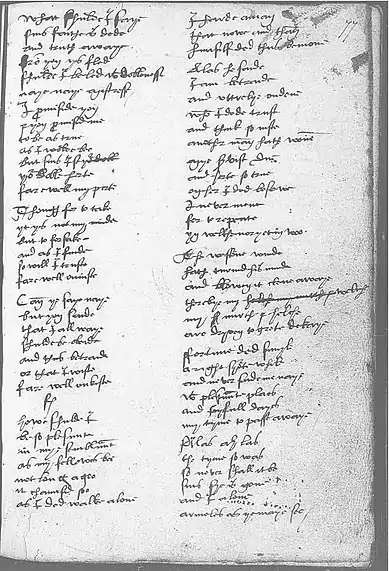|
Introduction | Contributors | Textual Introduction |
| ←lament my losse my labor and my payne | howe shulde I→ |
 The Devonshire Manuscript facsimile 77r |
f. [77r]
1 what shulde I saye
2 sins faithe is dede
3 and truthe awaye
4 from{_o} you ys fled
5 shulde I be led
6 with{w+t+} doblenesse
7 naye naye mistresse /
8 I pro{p3}miside you
9 & you pro{p3}misid me
10 to be as true
11 as I wolde bee
12 but sins I se yor dobl
13 yor doble herte
14 farewell my parte
15 Though for to take
16 yt ys not my minde
17 but to forsake
18 and as I finde
19 so will I truste
20 fare well oniuste
21 Can{_a}n ye saye nay
22 but you saide
23 that I all waye
24 shulde be obeide
25 and thus betraide
26 or that I wiste
27 fare well onkiste
fs
Commentary
This poem, attributed to Sir Thomas Wyatt,[1] was entered by H8. The speaker laments over his double-hearted lady and her faithlessness.
H8 combines lines 5 and 6 together in order to make 26 graphical lines out of 27 poetical lines.